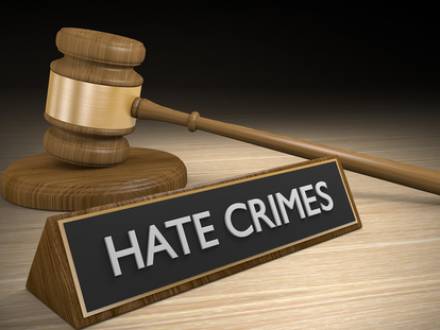Tennessee to Target Misdemeanor Hate Crimes in 2025
 In 2025, the state of Tennessee introduced more aggressive enhanced hate crime laws. These laws are linked to the Protecting Everyone Against Crime and Extremism (PEACE) Act. The goal of the updates is to close any current gaps in Tennessee criminal laws by targeting vandalism, intimidation, and harassment – crimes that traditionally escape prosecution under the felony-only hate crime standards.
In 2025, the state of Tennessee introduced more aggressive enhanced hate crime laws. These laws are linked to the Protecting Everyone Against Crime and Extremism (PEACE) Act. The goal of the updates is to close any current gaps in Tennessee criminal laws by targeting vandalism, intimidation, and harassment – crimes that traditionally escape prosecution under the felony-only hate crime standards.
The updates make these crimes prosecutable as misdemeanors and are intended to send a message: intolerance and misconduct resulting from bias, even when no bodily harm is caused, will no longer be tolerated. Tennessee previously limited hate crime enhancements to felonies, leaving misdemeanors unaddressed, thus creating a void for bias and hate-motivated vandalism, harassment, threats, and property damage.
The PEACE Act (HB 55/SB 30) further adds misdemeanors for "hate littering," which includes banner hanging, intimidating flyers, and box-truck transportation of hate group members. The goal is to curb increasingly brazen acts by extremists, including neo-Nazis. If you are facing a misdemeanor hate crime enhancement, it is important that you consult with an experienced Farragut, TN criminal defense attorney.
Why Are Some Tennessee Residents Opposed to the PEACE Act?
Opponents of the PEACE Act argue that the law permits law enforcement officers to arrest individuals for misdemeanor offenses, even if the officers did not witness the offense firsthand. Critics also argue that certain provisions of the PEACE Act infringe on First Amendment rights, particularly those related to assembly and freedom of speech.
Other concerns are that there is a potential for the law to be used for racial profiling and harassment, and that some of the provisions, like the restrictions on approaching law enforcement, are overly broad and may impact peaceful protests and public oversight of police.
In Practical Terms, How Will the Misdemeanor Hate Crime Enhancements Work?
Crimes that are currently misdemeanors in the state that could have a hate crime enhancement added include:
- Stalking
- Harassment
- Vandalism and other types of property damage
- Simple assault
- Threats or intimidation crimes
- Disorderly conduct
If the perpetrator of these acts deliberately targeted the victim based on disability, sexual orientation, gender identity, national origin, ethnicity, religion, or race, he or she could face enhanced penalties. The penalties for a misdemeanor hate crime enhancement include longer jail sentences, higher fines, probation with mandatory bias counseling, and a permanent criminal record reflecting a hate crime designation.
What Else Should You Know About Misdemeanor Hate Crime Enhancements?
As you might imagine, the resulting criminal record could significantly affect employment, housing, and professional licensing, despite the fact that the offenses are misdemeanors. Police may be forced to largely rely on circumstantial evidence, including patterns of harassment, social media activity, or past behavior, to prove hate crimes. First-time offenders can be charged under the misdemeanor hate crime laws when their actions meet the legal threshold for bias motivation.
As with any criminal charge, false allegations are possible, and defense attorneys will need to challenge circumstantial or weak evidence. The laws apply to both juveniles and adults in the state. A juvenile charged with a misdemeanor hate crime will likely face adjudication in juvenile court, usually with mandatory counseling.
It is important for an individual accused of a misdemeanor or felony hate crime enhancement to speak to an attorney immediately. The right to remain silent should be taken seriously, and no attempts to "explain" actions or words to the police should be made. Those accused of a hate crime should also avoid discussing the incident online, as social media posts can be used by the prosecution in court. Avoid discussing the incident online, since social media posts can be used by the prosecution in court.
Contact a Knox County, TN Criminal Defense Lawyer
If you are facing hate crime charges, a Knoxville, TN criminal defense attorney from The Baker Law Firm can aggressively defend your charges and your future. Attorney Baker will build the best defense possible on your behalf and also practices civil rights law, teaching civil law cases at his law school. Call 865-200-4117 to schedule your free consultation.
![[[title]](/images/logo.png)








 Map & Directions
Map & Directions


